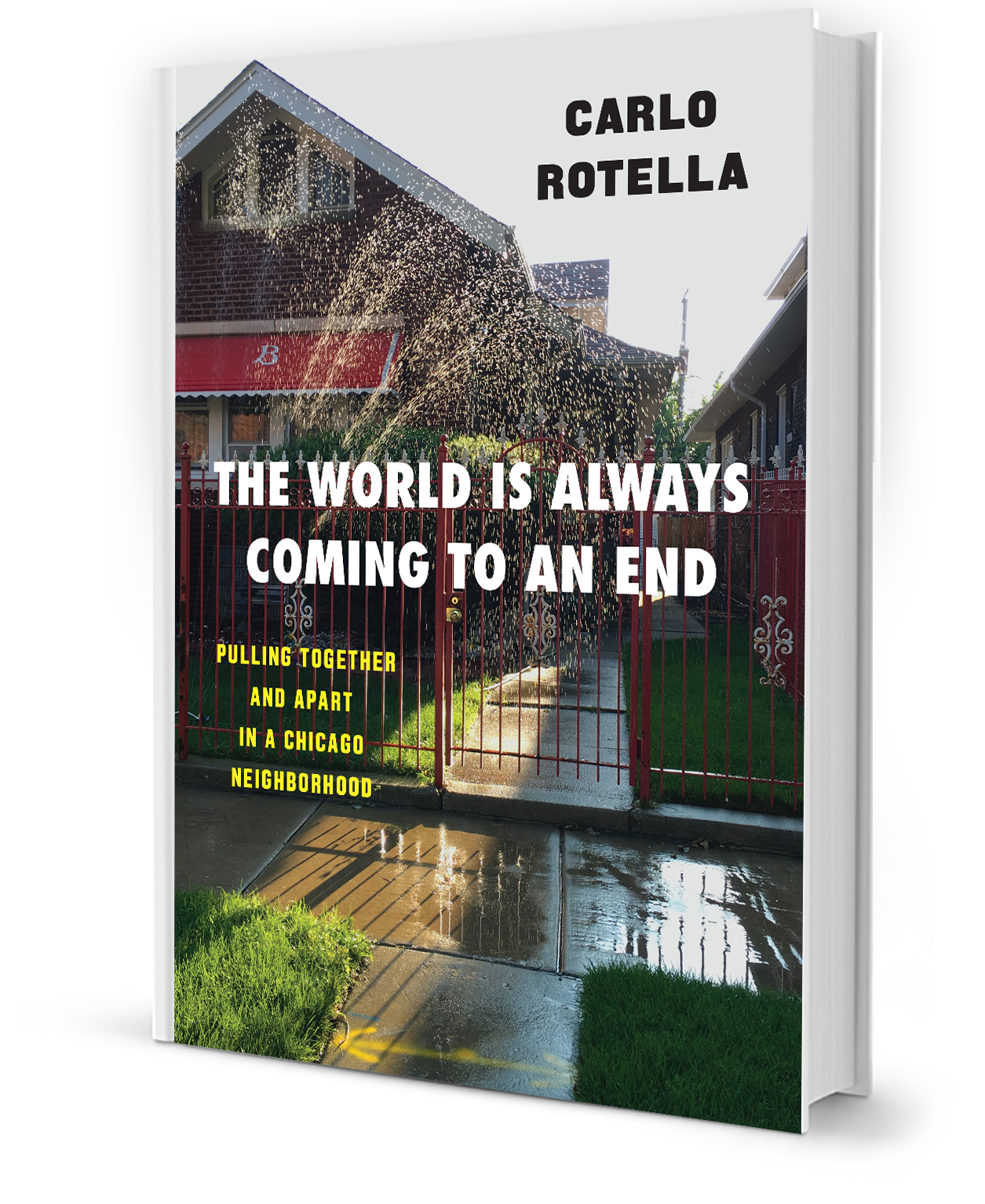What is a neighborhood? It's a place—buildings, streets, the familiar landscape of home. But it’s also people who must work together to create community. So what happens when neighbors withdraw from public life behind iron bars and burglar alarms? What becomes of a neighborhood when the balance shifts between sociability and privacy, between coming together and pulling apart?
Carlo Rotella returned to South Shore, the neighborhood on Chicago's South Side where he grew up, to find that the hollowing out of the middle class has left haves and have-nots separated by an expanding gap that makes it hard for them to recognize each other as neighbors. Blending journalism, archival research, and memoir, The World Is Always Coming to an End uses the story of one American neighborhood to challenge our assumptions about what neighborhoods are, and to think anew about how neighbors can come together across widening divides to form a vibrant community.
"An ambitious analysis of a singular neighborhood that in some ways serves as a microcosm for all urban neighborhoods. . . . The author offers a nuanced narrative, partly personal and partly sociological, that keeps circling back to the same important truths about race, class, community, poverty, and crime. A thought-provoking deep dive into a neighborhood that remains in perpetual transition."
Kirkus Reviews
"The neighborhoods of our childhood still live within us, shaping our perceptions of the world today. Carlo Rotella brings alive the past and present of his own neighborhood effect in the historic South Shore of Chicago, . . . in the process giving us what he calls equipment for living. His experiences conjure the reader’s own lost cities, making the book reach far beyond Chicago."
Robert J. Sampson, author of Great American City
"The World is Always Coming to an End is an investigation of a city in continual flux, the roiling tensions of race and class and respectability in wherever one calls home. It's a powerful account that uses South Shore to capture both the story of Chicago (and through it, industrial and post-industrial cities nationwide) and what it means to be a neighborhood."
Ben Austen, author of High-Risers
